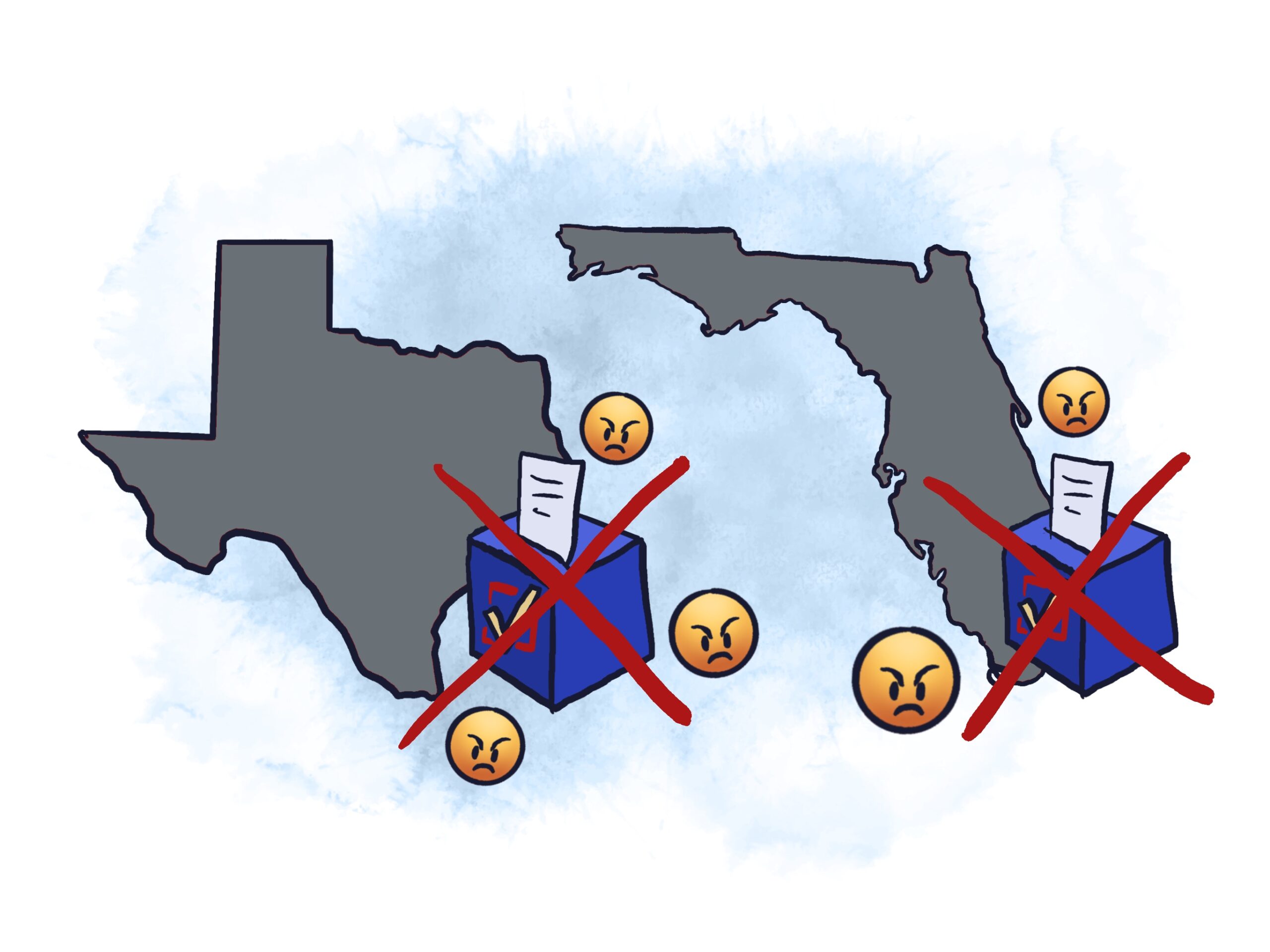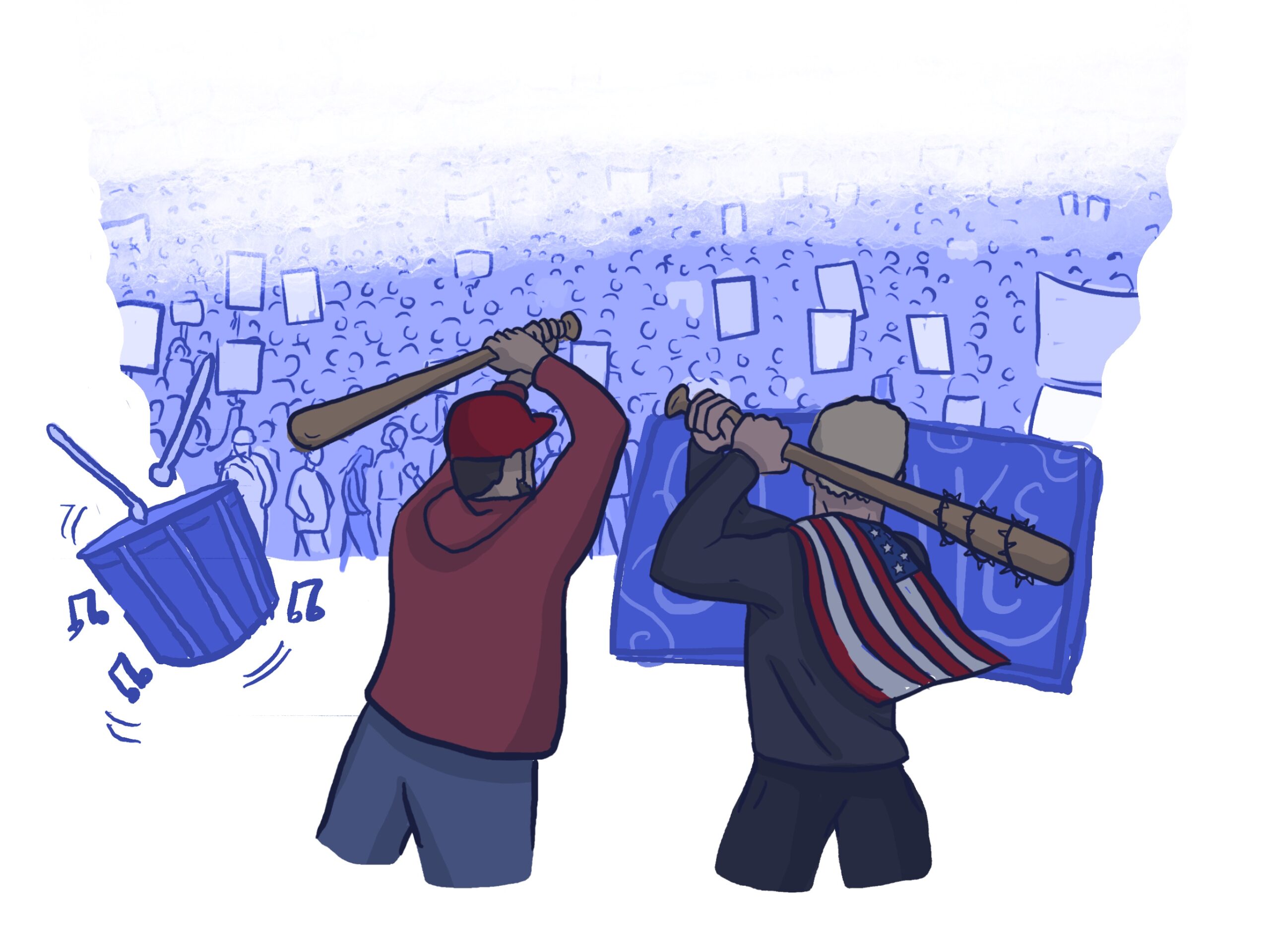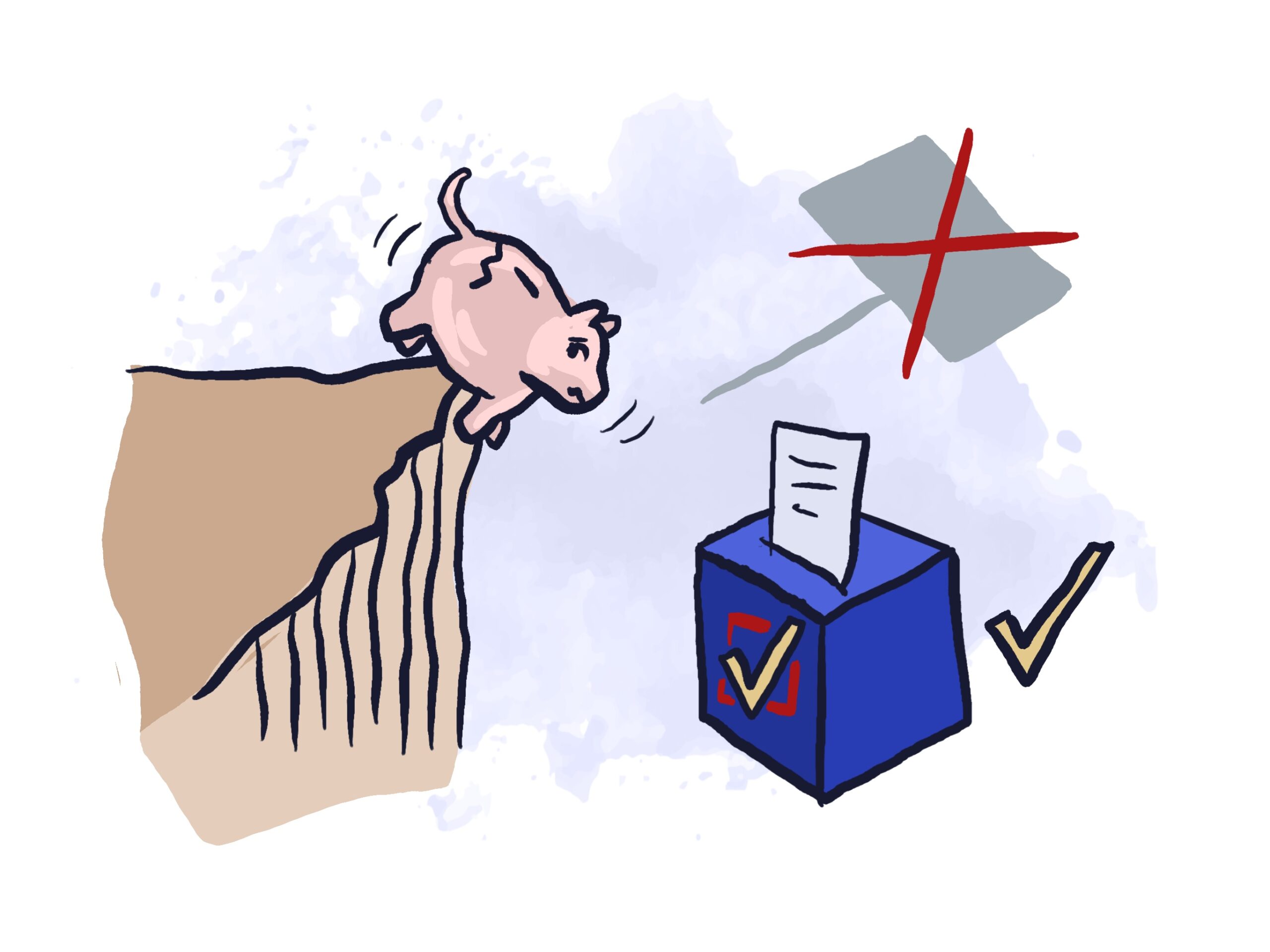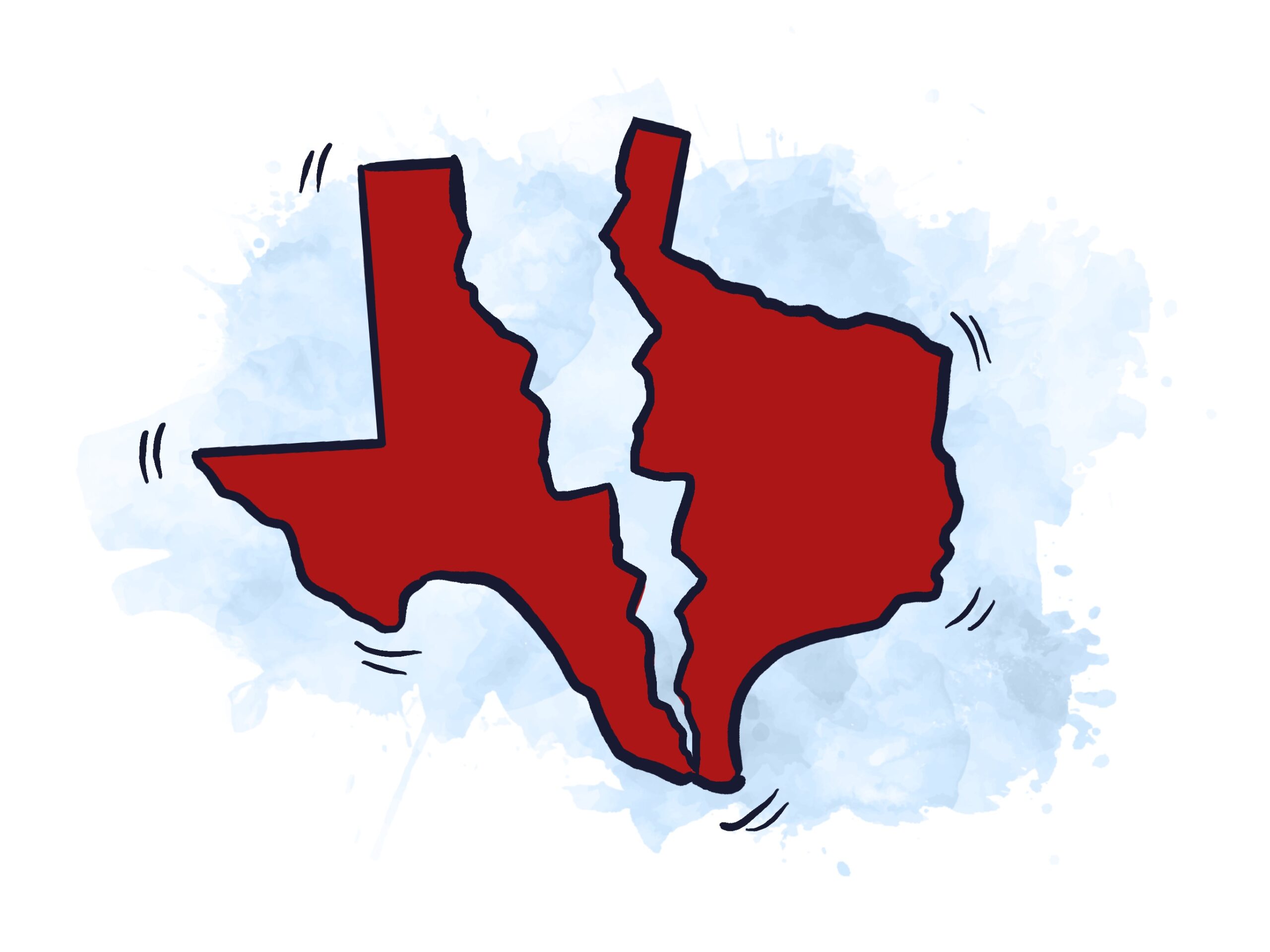The states completely ignore the Supreme Court’s order. This is met by outrage — and for a moment a sense that it’s all unwinnable. The Supreme Court has no army to enforce the order and the states claim, “With the ongoing strikes, it’s impossible to carry out elections.”


Buoyed by Trump’s rhetoric, counter-protestors attempt high-profile, targeted violence. They go to actions in major cities and attack people with bats. Though fear ripples through the movement, they are severely outnumbered and their actions fail to stem the tide of people in the streets. Artists flood the streets with music — to reduce fear — and pieces of art that also serve as physical ways to keep distance from counter-protestors.
Reports pour in about how the U.S. economy is losing substantial amounts of money daily from the strikes. Corporate CEOs privately meet with Republican senators to find a resolution; some threaten to take their business out of the country. Expanding the definition of “strike,” election workers vow to carry out the elections anyway. Many hours of volunteer and expert labor goes into making the states’ elections happen despite the unlawful orders from the states. When election workers are arrested by police, retired military personnel show up outside jail cells with signs: “A Democracy Needs Election Workers.”


The economic pain is unbearable. Texas breaks first. Under pressure from CEOs and business interests, the governor agrees to a backdoor deal allowing elections in exchange for an end to all strikes in Texas. This is controversial. But, now isolated, Florida soon follows suit. Within hours, strike leaders have confirmed the authenticity of the deal and all strikes are ended.
